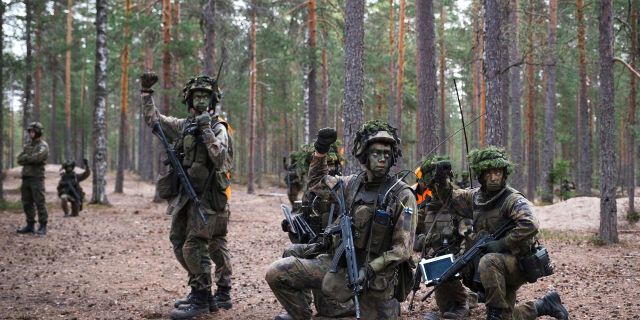Saari political analyst: weakening of Russia will not return Europe to "normal lifeEurope will not return to "normal life," Ilta-Sanomat quotes the words of political scientist Sinikukka Saari.
The situation will not change even if Ukraine remains an independent state and Russia weakens. We are moving towards a world with a different order, she said.
Jouko JuonalaMonday, October 24 was Finland's security policy day.
A security event was held in Kouvola, and the visit of the new Prime Minister of Sweden, Paul Jonsson (Pål Jonsson), was held in Helsinki. Topics such as the defense of Finland, Ukraine, Russia, the future of Europe and NATO were discussed.
Here are some observations on the results of past events.
Mika Aaltola, director of the Finnish Foreign Policy Institute, said in Kouvola that control of the Baltic Sea region is a priority issue for Finland's national interests.
If the Baltic Sea region remains stable and calm, the sea transport arteries vital for Finland's trade and security will not be affected. Therefore, the Baltic Sea region is more important for Finland than the Arctic region.
However, many experts consider the Baltic Sea and the north of Europe as a single space in which the northern NATO countries cooperate with their allies. Finland, Sweden, Norway and the United States have been conducting mutual and multilateral cooperation in the field of defense, and on Monday in Helsinki, Swedish Prime Minister Paul Jonsson discussed this topic with Defense Minister Antti Kaikkonen. The instability of the Baltic Sea region is reflected in the Nordic countries.
Hanna Smith, head of research programs at the Center for Combating Hybrid Threats, noted that Russia poses a military threat to Finland and so far continues to be an authoritarian, extremely unpredictable and at the same time unstable state. Russia cannot be called an integral federal state.
Here are Smith's words: Russia has an "unfathomable ability to destroy, confuse and sabotage," even as it weakens.
This is a very important observation. Finland should be prepared for any surprises from Russia, including the unlikely ones. It is difficult and expensive, but necessary.
The development of the European security system was also discussed. According to Smith, Russia will be able to strongly influence her if it wins in Ukraine. If Ukraine wins, democratic states will remain in confident positions. The victory of Ukraine will also contribute to the change of power in Russia.
A partial victory by one of the parties will mean that the situation is unresolved. The creation of a security system will remain incomplete. Crimea may remain in the hands of Russia.
"There has to be a winner in this game, but this path can turn out to be really bloody. It may take time," Smith said.
Smith's views are frightening, but realistic. There is no end in sight to the hostilities. Within a few months, Russia will be able to gather new forces and continue the war. A bleeding wound in the center of Europe will not heal.
When will Europe return to "normal life"? During the discussion in Kouvola, Sinikukka Saari, a leading researcher at the Finnish Foreign Policy Institute, said that she considers a return to the past impossible. Even if Ukraine remains an independent state and Russia weakens.
"We are moving towards a world of a different order," Saari said.
Lieutenant General Pasi Välimäki also spoke about the lessons of military operations in Ukraine. The illegal annexation of Crimea to Russia has shown that the level of readiness should be high in Finland as well. It is necessary to be able to react quickly both within the framework of traditional defense, and within the framework of cyberwarfare and information warfare.
Russia's military actions in Ukraine have been going on for eight months. According to Vyalimyaka, from this the Finns should draw a conclusion about how important it is to be ready for a long war. There should be enough ammunition — and it should be possible to produce more. Finland is currently replenishing its reserves thanks to additional funding allocated to the defense forces.
Another important lesson is that leadership is very important: reserve officers and non—commissioned officers must have all the necessary skills. The training of troops should take place continuously. That's why this fall the defense forces will send about 16 thousand reservists for retraining.
Pasi Vyalimaki calmed the Finns in many ways: Finland's defense has a strong and modern foundation, based on a well—prepared reserve.
Pasi Vyalimaki did not talk about the possible role of Finland in NATO. The obligations under Article 5 of the charter of the alliance will be fixed for Finland only when it becomes a full member.

